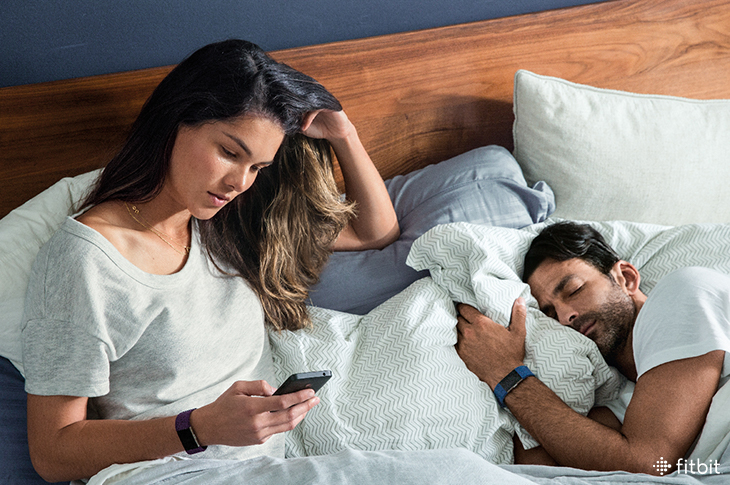
If you find your day is full of soda, energy drinks, and sugary lattes, it might be time to be more thoughtful about your beverage habits. According to a recent study from researchers at the University of California, San Francisco, those who get five or less hours of sleep each night also tend to consume drinks full of caffeine and sugar each day.
The scientists nabbed data taken from the National Health and Nutrition Survey (NHANES) between 2005 to 2012, looking into the beverage consumption and sleep routines of more than 18,000 participants. They measured how frequently men and women tipped back both caffeinated and non-caffeinated sugar-sweetened drinks, fruit juices, beverages with artificial sweeteners, coffee, tea, and water.
After controlling for socioeconomic and health factors that might impact the results, researchers found that men and women who fell under that five-hours-per-night sleep benchmark consumed 21 percent more of the caffeinated and sugary beverages, compared to those who got a healthy seven to eight hours of sleep a night. And those who got just six hours of sleep downed 11 percent more of the sugar-filled and caffeinated drinks.
Study researcher Aric Prather, PhD, an assistant professor in the Department of Psychiatry & Weill Institute for Neurosciences at UC, San Francisco, says that, interestingly, caffeinated drinks without sugar were not consumed at higher rates among shorter sleepers. “This means that it seems to be something about the combination of sugar and caffeine that is related to sleep,” he explains, saying these results are consistent with the bidirectional link between sugar-sweetened drinks and sleep.
According to Prather, there may be a feedback loop of sorts. “On one hand, it is well known that caffeine, and perhaps sugar, consumed close to bedtime can disrupt and shorten sleep,” he says. “On the other hand, sleepy people crave sugar and routinely use caffeine to get through the day. Lack of sleep has been shown to alter appetite and reward pathways in the brain.”
While sleep deprived, it’s common to crave high-fat, sugary foods—and noshing on cakes and pastries, for instance, “helps dampen the stress response, which is also upregulated during periods of sleep debt,” Prather explains. “Consequently, the consumption of these types of foods, including sugar-sweetened beverages, is reinforcing how hard it is to remove these items from one’s diet.”
And you want most those items out of your eating and drinking routine. There is quite a bit of “intriguing science going on around the toxic effects of excess sugar consumption,” says Prather. “This includes excess fat, changes in the metabolic processes responsible for type-2 diabetes and non-alcohol related fatty liver disease.” Sleep deprivation can impact metabolism, too. “Studies demonstrate that lack of sleep can significantly alter glucose tolerance, immune function, and inflammation, that over the long term can lead to chronic disease,” Prather says. “Combining short sleep with excess sugar consumption is certainly a recipe for poor health outcomes.”
So, what do you do? First, remember that lack of sleep and sugar consumption seem likely to impact each other in a sort of feedback loop. If you consume a lot of sugary, caffeinated drinks, you’re more likely to get less sleep or poor-quality sleep; if you’re sleep deprived, you may reach for more sugary, caffeinated drinks (and unhealthy foods).
Try to be more conscious of your drink choices. Water is always great, and plain coffee and tea before midafternoon. (Prather suggests checking out Harvard’s healthy beverage guidelines.) By nixing the jolts of that sugar-caffeine combination, you may find it easier to get seven to eight hours of sleep at night—and Prather suggests “these sleep improvements may make it easier to change your diet.”
A little mindfulness can go a long way for feeling better each day… and long-term. How great is that?
This information is for educational purposes only and is not intended as a substitute for medical diagnosis or treatment. You should not use this information to diagnose or treat a health problem or condition. Always check with your doctor before changing your diet, altering your sleep habits, taking supplements, or starting a new fitness routine.

If you are diabetic or pre-diabetic, you can be up and down all night using the bathroom. Your body will expell the extra sugars in your urine. It isn’t just actual sugar that’s the problem. Carbohydrates that turn into glucose (sugar) count!